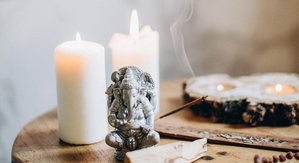By N. Lothungbeni Humtsoe
New Delhi – Aromatherapy has a rich history that spans across countries and continents. It is a practice of using natural plant extracts to promote physical and mental well-being. People have used aromatic herbs for their therapeutic benefits from ancient civilizations to modern societies.
“Aromatherapy has gained popularity in today’s fast-paced environment as a method of stress relief, relaxation and overall well-being. From home diffusers to therapeutic massage sessions, the use of essential oils has spread across many cultures. Scientific studies into the potential benefits of aromatherapy are still ongoing, providing insight into its effectiveness in treating a range of mental and physical conditions. says Ridhima Kansal, director of Rosemoore.
“This ancient ritual unites traditional wisdom with contemporary life, transcending time. We create a spiritual connection with the natural world by inhaling the energy of ancient cultures, rekindling the peace that exists within each of us. Aromatherapy continues to weave its fragrant tapestry through the fabric of our world heritage, whether through the calming scents of Provence lavender or the spiritually significant sage bundles of Native American rituals. So let’s recognize and celebrate these various customs that have given us access to the power of aromatics for many years.
Let’s understand the fascination with aromatherapy traditions across the world and their distinctive contributions to holistic health.
India: Ayurvedic aromatherapy
India, with its ancient system of holistic healing known as Ayurveda, has been leading the way in aromatherapy for millennia. To balance the doshas of the human body (Vata, Pitta and Kapha), Ayurvedic practitioners used essential oils extracted from herbs and plants that promoted the mental and spiritual well-being of the body. Lavender, sandalwood and frankincense are commonly used essential oils known for their relaxing and revitalizing effects.
Egypt: ancient perfumery and healing
Aromatic substances had deep cultural and religious importance in the land of the pharaohs. As master perfumers, the ancient Egyptians used essential oils extensively in cosmetics, religious ceremonies, and for therapeutic purposes. In addition to being highly valued for their therapeutic qualities, oils such as myrrh, frankincense, and rose were often used in embalming practices.
China: Aromatherapy in Traditional Chinese Medicine (TCM)
Aromatherapy is also part of traditional Chinese medicine, an ancient therapeutic method. TCM used aromatic plants like peppermint, eucalyptus, and ginger to balance Qi (energy flow) and treat various illnesses. The Chinese believe that the body’s energy channels are directly influenced by smell, which is why they incorporate aromatherapy into their holistic approach to health.
Greece: Hippocratic Medicine and Beyond
The Ancient Greeks were influenced by Hippocrates and understood the true power of aromas. Due to its antibacterial and antifungal properties, they used essential oil extracted from herbs like thyme, oregano and rosemary. The Greek physician Dioscorides discovered around 500 therapeutic plants still used in aromatherapy.
Native American traditions
Aromatic plants have long been used for medicinal and spiritual purposes by the indigenous citizens of North America. Burning sacred herbs such as sweetgrass, cedar, and northern sage in a technique known as smudging, believed to purify the body, mind, and soul. The aromatic smoke promotes peace and balance by cleansing areas and calling in inspiring energy.
Morocco: The magic of Moroccan oils
Morocco, a country famous for its vibrant culture and breathtaking landscapes, is also home to a wealth of aromatic traditions. Moroccan argan oil is well known for its nourishing qualities for skin and hair. It is derived from the nuts of the Argania spinosa tree. Berber communities have used this precious oil for years, and it has grown in popularity across the world due to its popularity. (IANS)



